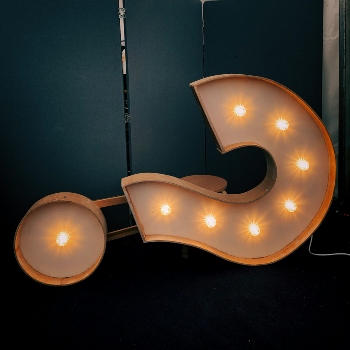This is the First Step in Building a Better Proposal
Even though Gene was still overwhelmed, and his schedule was packed, he knew the only way to ever get control was to keep his upcoming appointment with John.

Gene had spent a lot of time this past week considering the questions John had asked at the first meeting.
- Why do you do what you do?
- Do you love what you do?
- Why do we need to do proposals?
As Gene was driving to the office of SMR Construction, these questions were still banging around in his head with a wide variety of answers and no real clarity.
As he entered the office, Gene smelled something amazing. He hadn’t realized how hungry he was. John was providing lunch this week, and the smell made his hunger apparent.
In the conference room John was stirring some chili. “Lunch is ready. Grab a bowl and let’s get started.”
As they sat down John asked, “Did you come up with answers to the questions?”
Gene sat there for a minute and said, “I’ve come up with way too many answers. About the time I think I have it figured out; another answer shows up.”
John grinned, “That sounds about right.
The important thing is not having every answer to every question, but rather to continually be asking the questions and actively looking for the answers.
I still ask and answer questions every day.”
“A good way to find WHY answers is to figure out things that work and things that don’t. Let’s start with a WHAT question. John handed Gene some papers and said,
“What are the most common bid mistakes contractors make?

Here are seven mistakes that construction companies consistently make that cost them a fortune in both time and money. The first one is…
#1 Customers lack clarity – You remember the story I told you last week about that misunderstanding I had with a customer? This is a perfect example of how the lack of customer clarity is a problem. You need to provide a clear detailed description of the work and the materials you’re going to provide. A clear scope of work helps avoid customer confusion. The Building a Better Proposal provides a system to give clarity to your customer.
#2 Production crews lack clarity – The scope of work not only provides customers with clarity, but it also gives the production crews a clear understanding of the work to be done. This prevents subcontractors and employees from doing more or less than the project includes. Too much work done means cost overruns. Too little and the customer is unhappy. The Building a Better Proposal system gives the production crews a clear description of the work to be done.
#3 No production budget – When the production crews don’t know what the budget for the project is, they often spend more than expected. These cost overruns mean less profit.
When I was just starting out in business a banker told me…
If you take care of the pennies, the dollars will take care of themselves.

Let your production crews know how many pennies they have to spend. This will lead to more dollars of profit. The Building a Better Proposal system provides the production crew with budget numbers.
#4 Unsatisfied customers – Unhappy customers can be a series problem. Not only can they be a drain on company morale, but they can cost you money and hurt your reputation. They’re paying you to have their dream turned into reality. When they don’t have an accurate project amount before the work’s done, they won’t be happy when it’s finished and costs more than they expected. The Building a Better Proposal system gives the customer a clear expectation of cost before the work starts so that when it’s done for that price, they’ll be happy.
#5 Unprofitable projects – One of the biggest problems in construction is Guesstimates. Guessing at the amount of time and material it’s going to take to do a project is a big risk. Different size projects require different overhead and profit margins. The Building a Better Proposal system provides predetermined options of overhead and profit when preparing a proposal.
Proposals done this way can increase the profitability of your projects.
#6 Trying to do everything yourself – Most small construction companies only have a few employees. Their focus is usually on the physical construction which doesn’t leave time for doing accurate detailed proposals. Most contractors don’t like paperwork. This leads to hasty, inadequate, and oversimplified proposals. The Building a Better Proposal is a system that allows you to focus on doing construction while office staff does paperwork.
#7 Your bidding system isn’t customizable – Most construction projects consist of a variety of different areas of construction. You need a system that gives you the freedom to pick and choose what’s included and what’s not. Because markets vary greatly based on geographic locations, you need a system that you can adjust to your area’s specific requirements and rates. The Building a Better Proposal system allows you to customize proposals in these ways and more.”
John could see that Gene’s eyes were glazing over. “I know this is a lot to take in and doesn’t feel like we’re getting any closer to actually doing proposals, but I assure you…
Getting clear on these mistakes is the first step to providing better proposals.

Next week we’ll break down and look at the parts that make up the Building a Better Proposal.
You can check out the other Business BUILDing Tools that John uses here.
If you have questions about the Building a Better Proposal tool or how we can help you take control of your construction business, set up a free 30-minute construction company consultation.

